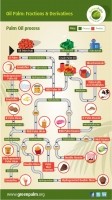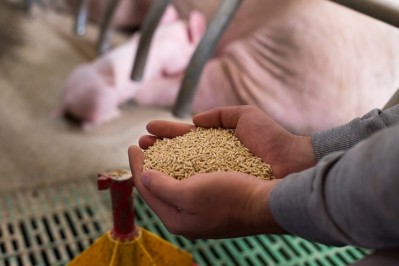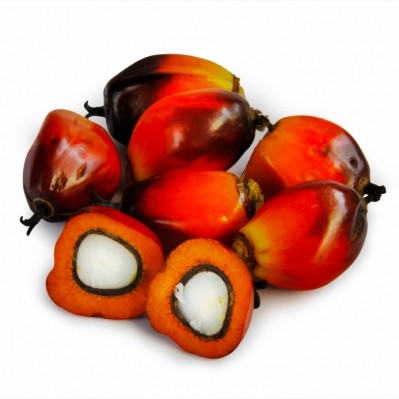'There is no market demand for sustainable palm oil use in feed' - Nevedi
Dutch feed makers await briefing on sustainable palm oil sourcing

Dutch feed trade association, Nevedi, said it has been undertaking this responsibility since 2015 but, in 2017, the onus will be on its feed manufacturer base to do so.
The trade group, though, will monitor the total palm oil use by its members and, from that, the amount certified.
Nevedi says about one-third of the animals produced in the Netherlands is consumed domestically. The palm oil usage varies year to year depending on price volatility, it added. The footprint for palm oil use in feed for the domestic Dutch market is on average 25,000 tons a year, said the trade association.
In collaboration with the Dutch Alliance of Sustainable Palm Oil and the EU representative of the Roundtable on Sustainable Palm Oil (RSPO), the association is hosting a workshop on how to buy sustainable palm oil for its membership on 9 December.
Nevedi director, Henk Flipsen, said he expects 60 to 70 representatives of its membership to attend that workshop: “The only ones we expect not to attend are the feed producers that don’t use palm oil as an ingredient. All the other companies are looking to find out what will be expected of them in this regard from 2017 onwards.”
Background
In 2015, the trade group started buying the RSPO book and claim credits to cover the Dutch feed industry’s collective use of palm oil for supply into the Dutch market, and the trade group said it repeated that exercise in 2016.
It did so, as part of the agreement with the Dutch Alliance Sustainable Palm oil (DASPO), to ensure the entire Dutch food and feed supply chain was using only sustainable palm oil for the Dutch market by the end of 2015.
“There is no market demand from retailers or farmers, for example, for sustainable palm oil in feed, but the Dutch feed sector, nevertheless, took on this responsibility,” said Flipsen.
He told this publication how, on the feed side, the payment system for credit buying worked:
“We spread the cost of the certification for the 25,000 of palm oil tons purchased across all our membership. But some feed manufactures, who don’t use palm oil at all, questioned why they would have the support the cost of such sourcing.
“We told them it would only be for a maximum of two years, and that, thereafter, it would be up to each company to calculate their palm oil usage for the domestic market, buy the certificates against that usage and be able to show the volumes bought are RSPO certified.
'There is no market demand from retailers or farmers, for example, for sustainable palm oil in feed, but the Dutch feed sector, nevertheless, took on this responsibility.'
“Such a process will begin in 2017. For the smaller feed manufacturers, we have said that we will find a way to help them understand the procedures involved, make sure they have access to advice and information needed, but it is the companies themselves that must pay for the GreenPalm credits now.
“The larger feed manufacturers are in agreement. They just wanted to ensure, initially, that all members of Nevedi that use palm oil would be obliged to follow the same course of action in terms of certificate purchases.”
Palm kernel expeller challenge
Mainly two kinds of palm products are being used in the feed industry - palm kernel expeller (PKE) and palm oil, which can be made up of different blends.
PKE is the meal that remains when oil has been extracted from the palm kernel; it has a high fiber content that makes it a valuable protein-based feed for cattle and other animals.
GreenPalm, which operates the RSPO book and claim credits system, said businesses using or buying PKE can off-set their use by buying GreenPalm certificates representing an equivalent amount, which enables them to give direct support to PKE producers and mills working within the rules of the RSPO.
However, Flipsen said it is Nevedi’s stance that buying credits for PKE is “not meaningful because this product is economically not interesting and also easy to replace by other fiber rich raw materials; furthermore, the availability [of PKE] for the Dutch market is decreasing due to demand [for the ingredient] in Asia as animal husbandry grows in that region.
“Therefore, our focus is on the sustainability of palm oil, although palm oil, which delivers energy to the animal like any other fat, also can easily be replaced in feed by other vegetable oils depending on price and availability.”
The UK government’s Central Point of Expertise on Timber (CPET), in a report in February 2015, agreed it is difficult to influence the palm kernel meal supply chain, as it is a byproduct of palm oil, and because palm oil is usually sold in blends to manufacturers it is difficult to trace.
But the agency noted, nevertheless, some animal feed suppliers have made commitments to purchasing sustainable palm kernel meal, including through RSPO membership and purchase of segregated or mass balance CSPO.
Danielle Morley, RSPO's European directer of outreach and engagement, said the total certified sustainable palm kernel expeller (CSPKE) available in the market is approximately 55% of the total certified sustainable palm kernel (CSPK) volume.
"To our knowledge, there is not a total figure for CSPKE purchased by the international feed industry available. The RSPO recognises that updake of CSPKE is lagging behind in animal feed sector. We are working with our members to stimulate use in Europe," she said.
Physical supply
Sandra Mulder, senior advisor on soy and palm oil markets from WWF Netherlands, said the Dutch feed industry has not made any move towards physical supply chains in palm oil, while noting other Dutch palm oil buyers documented in the recent WWF compiled palm oil buyer scorecard have started to make that move.
But Flipsen said: “It would be much too expensive for the feed sector to go down the mass balance or fully segregated road. Such an approach would mean the amount of palm oil used in feed in the Netherlands would diminish altogether.

“And the Dutch feed industry does not want to stop using palm oil. In order to optimize the feed formulation, we need to ensure access to a range of raw material commodities.”
Mulder also questioned the dearth of information from the Dutch feed manufacturers that operate internationally about how sustainable their use of palm oil is in the other markets they supply.
Mark Woldberg, a spokesperson for the Netherlands headquartered, international feed player, Nutreco, said: “We don’t disclose volumes; we also didn’t do that in the Annual Review 2015, but we purchase all of our palm oil products, excluding kernel, certified.”
Other European markets
In terms of other markets, the WWF’s Mulder said a report published last month by the German palm oil forum (FONAP) (in German) on the amounts of certified palm oil in use in Germany showed only 15% of the total 147,700 tons sourced by the feed sector there is certified sustainable.
Meanwhile, George Perrot, who heads up the animal feed section of the UK’s Agricultural Industries Confederation (AIC), told us about three quarters of the palm oil purchased by the UK feed sector is covered by certificates.
“That estimate is based on a survey of the membership. The absolute volume of palm oil purchased by the UK feed industry is less clear as most of our members buy it as part of a blend of oils as not on its own. Our best estimate is of the order of 40-50,000 tons per year.
“It is up to individual members to determine how they wish to comply but the majority would buy, or have bought by their fat suppliers, GreenPalm certificates.
“We have not tracked the figure for palm kernel meal as this was not covered by the commitment we made to DEFRA [the Department of the Environment, Food and Rural Affair) in November 2012. However, the supply chain for PKE is more complex than that for palm oil and, therefore, making an estimate would be more difficult,” said Perrot.
FEFAC focus
Angela Booth, director of feed safety at UK feed producer, AB Agri and a member of the sustainability committee at the EU feed manufacturers’ federation, FEFAC, said AB Agri’s current used of palm oil is lower than in previous years as a consequence of economics.
“AB Agri has all its palm oil and oil derivatives covered as a minimum by certificates,” she said.
Booth also noted PKE continues to be challenged by the fragmentation of the supply chain and so is a very different proposition from palm oil.
She added that palm oil was on “the priority list for the FEFAC sustainability committee as we review the next actions following the FEFAC Soy Sourcing Guidelines development.”
Talking to this publication last year, a spokesperson for FEFAC said the quantities of palm oil use by the European feed sector are “not really that high, though, and feed will never be a driver of palm oil production, as it can be for soy.”












